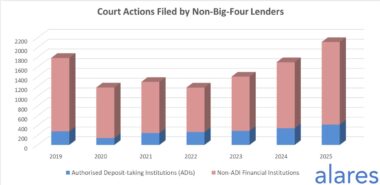SYDNEY, 18 DECEMBER: Recent warnings in NSW to dial down electricity use to avoid blackouts, brought into sharp focus the challenge faced by companies with significant investments in long-lived assets as they try to manage a wide and varying array of risks, according to experts at management consultancy, Partners in Performance.
On 27 November, the grid operator, AEMO, said heatwave conditions combined with the unavailability of major power stations – planned and unplanned – meant the State could run short of electricity unless use was curtailed.
As Australia’s politicians debate the path to a low-carbon future, the fate of carbon-intensive industries hangs in the balance, with many companies left to wonder how long their assets will remain viable, and valuable.
“Whether it’s an aluminium smelter, a mining operation, or critical infrastructure, the ability to effectively manage risk and adapt to shifting market dynamics has never been more crucial,” David Budd, a Partner at Partners in Performance said.
These risks can be driven by a range of forces, some even unrelated to climate change mitigation. They can vary from political and regulatory changes to technological advancements, from extreme weather events to market shifts, and they can happen very quickly and with little warning.
Which technologies will be accelerated, and which will be phased out? What extreme weather impacts can we expect as global emissions continue to rise?
"The uncertainty around the lifespan and value of these long-lived assets is a major concern for companies and investors," Mr Budd said. "They're making decisions today that will have multi-decade implications, and they need a sophisticated framework to help them navigate that complexity."
Incentives offered by regulators need to factor in both short- and long-term risks and impacts. A regulator can’t expect a 100% renewable future and regulate for that, because companies transitioning out, will naturally minimise investment in the assets, which will no longer be long-lived. This can easily have short-term negative impacts on the broader economy through blackouts and brownouts.
Companies operating in asset-intensive industries need to develop a structured approach to managing uncertainty. At the heart of such a framework is the identification of potential future scenarios and the key signposts that indicate which path the industry is heading down.
"It's not about relying on static forecasts or plans," explained Rob Fowler, Partner, Energy Transformation at Partners In Performance.
"It's about constantly monitoring the landscape, from political and regulatory changes to technological advancements and market shifts. Then using that information to inform regular cycles of refreshing your strategy, tactics and decision-making."
One of the critical elements of this approach is the concept of "regret capital" – the investments that companies make that ultimately become worthless due to unforeseen events or changing circumstances.
By stress-testing different scenarios and identifying potential trigger points, organisations can better understand the risks they face and make more informed decisions about where to allocate their resources. They can be more confident that any regret capital will be minimised.
"We've seen it happen time and time again, where companies invest millions of dollars in long-lived assets, only to have it become obsolete a few years down the line," Mr Fowler said. "The goal is to avoid those kinds of costly mistakes."
For data centres, this might mean closely tracking the development of renewable energy and battery storage projects in their region, the political landscape around emissions targets and water consumption, and the potential for new technologies to process data with less energy.
By continuously updating their understanding of these factors, they can adjust their investment plans and operational strategies accordingly.
"It's not just about reacting quickly to changes. It is about being proactive and positioning yourself to take advantage of new opportunities," Mr Budd said. "If you can see the writing on the wall, you can start preparing for the transition, whether that's diversifying your portfolio, investing in new technologies, or finding innovative ways to extend the life of your existing assets."
This approach is not limited to the energy sector, however. Partners In Performance has also helped clients develop similar frameworks for a range of industries, from mining and manufacturing to transportation and telecommunications.
"Whether it's a railway network, a fleet of heavy machinery, or a portfolio of real estate, the principles are the same – you need to be constantly monitoring the landscape, identifying risks and opportunities, and making strategic decisions that will position your organisation for long-term success," Mr Fowler said.
For companies grappling with these issues, the key is to adopt a more sophisticated and proactive approach to risk management. By developing a structured framework for managing uncertainty, they can not only avoid costly mistakes, but also uncover new avenues for growth and innovation.
"It's not just about protecting the value of your existing assets," Mr Budd said. "It's about positioning yourself to thrive in an increasingly complex and volatile world. And that's where the real value creation can be found."
As the world continues to grapple with the challenges of the 21st century, the ability to navigate uncertainty will be a critical differentiator for companies with long-lived assets. By embracing and investing in a more dynamic and forward-looking approach, they can not only weather the storm but emerge stronger and more resilient than ever before.
About us:
About Partners in Performance
Partners in Performance, part of Accenture, is an agile, fast growing international management consultancy; a leading global player in driving operational excellence for complex organisations. By working as true partners with clients, Partners in Performance enables lasting change in organisations; delivering both commercial impact and inspiring people to transform their behaviours.
For more information visit pip.global
Contact details:
Media enquiries: [email protected]

